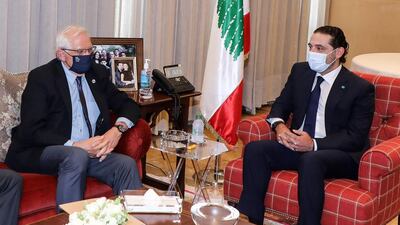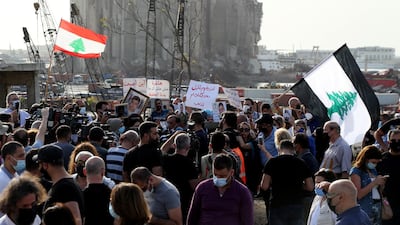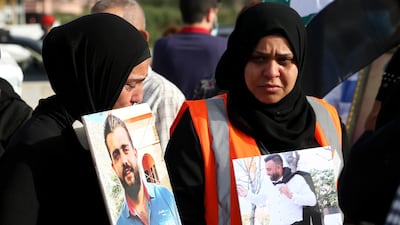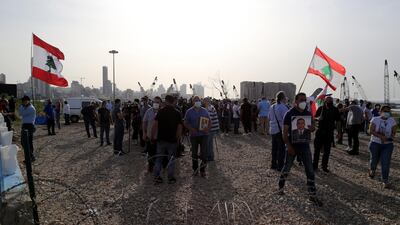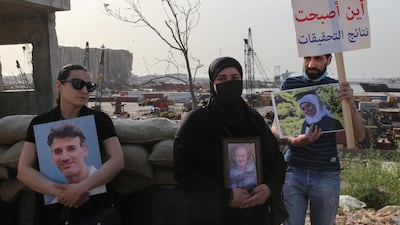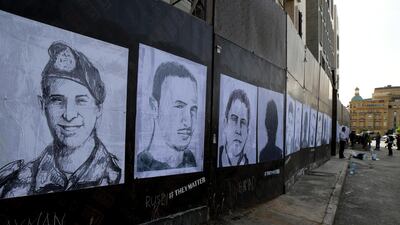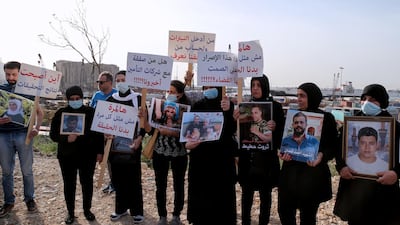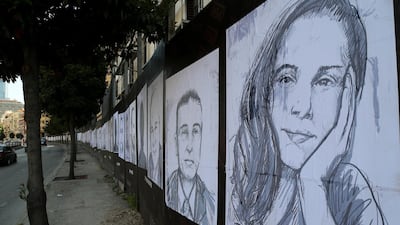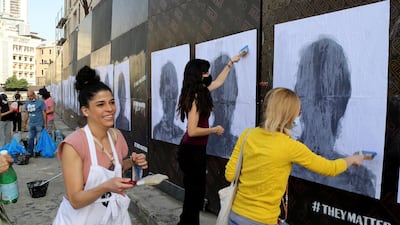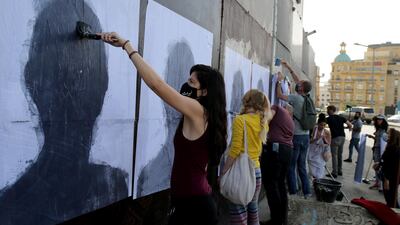The EU may impose sanctions against politicians blocking government formation in Lebanon, the EU's foreign policy chief said after meeting the Lebanese President in Beirut on Saturday.
The comments by Josep Borrell follow a tougher approach by France on the Lebanese political establishment – widely blamed for one of the most severe economic crises in the country’s history.
"The Council of the European Union has been discussing options, including targeted sanctions," Mr Borrell said at the Presidential Palace in Baabda, a Beirut suburb.
“We prefer not to go down this road and we hope that we will not have to, but this is in the hands of the Lebanese leadership.”
He is the latest European official to visit Beirut to urge politicians to take action nine months after they failed to agree on a reformist government.
Government formation was the first step in a French-led rescue plan set by President Emmanuel Macron in September to unlock billions of dollars in international aid and debt relief.
Lebanon was formerly under French mandate and the two nations have retained close ties. Mr Macron has invested significant political capital to solve the Lebanese crisis.
He visited Beirut twice since an explosion in August killed more than 200 people and raised international concerns about governance in Lebanon.
Mr Borrell said the EU had a “message of firmness” to Lebanese political leaders it regards as responsible for the current crisis.
“The crisis Lebanon is facing is a domestic crisis. It is a self-imposed crisis. It is not a crisis coming from abroad or from external factors,” Mr Borrell said.
“It is a home-made crisis. It is a crisis done by yourselves.”
He urged the political class to hold parliamentary elections on time in 2022.
He is due to meet Prime Minister-designate Saad Hariri and Parliament Speaker Nabih Berri, an ally of Hezbollah. The Iran-backed group is widely considered to have veto power over the formation of a new government.
Mr Borrell will also meet leaders of civil organisations, some of which have been urging international powers not to give aid to the government, arguing that it would be wasted or stolen.
In April, France imposed a travel ban on unnamed political figures, saying they were obstructing the formation of the government.
Targeted sanctions
A European diplomat told The National that France had been lobbying the EU to impose a tougher policy on the Lebanese political class, which Paris considers to be failing "as a whole" to embark on any meaningful reform.
"The French view is gaining for the need to treat Lebanon as a banana republic and target those in control with asset freezes, travel bans and other restrictive measures," said the diplomat.
The diplomat said that any moves the EU took against Lebanese politicians would still be gradual.
“You will not see blanket bans and sanctions on whole sectors, although France and other EU countries are trying to channel aid away from the government and into civil structures,” the diplomat said.
A diplomatic note seen by Reuters showed that the EU was preparing potential sanctions against Lebanese politicians for possible involvement in corruption, obstructing government efforts, financial mishandling and human rights abuses.
"It might be argued that the lack of political responsibility of the leadership in Lebanon is at the core of a massive implosion of the economy," the note reads, referring to the possible human rights criteria.
"This has led to significant suffering and has affected the human rights of the population in Lebanon."
Mr Borrell will report to EU foreign ministers on Monday following his Beirut trip.
